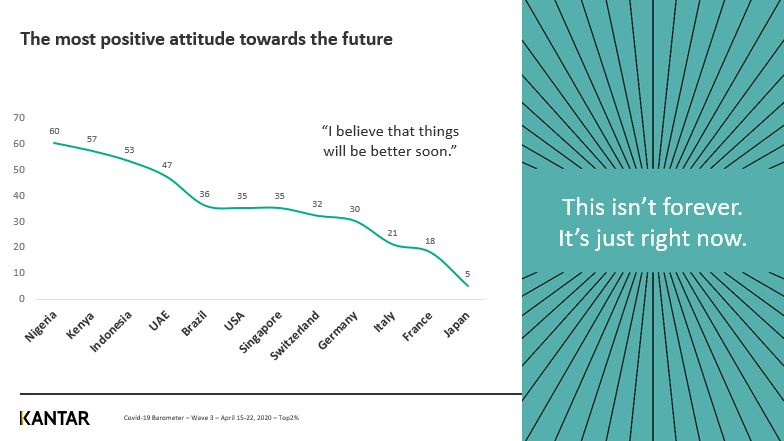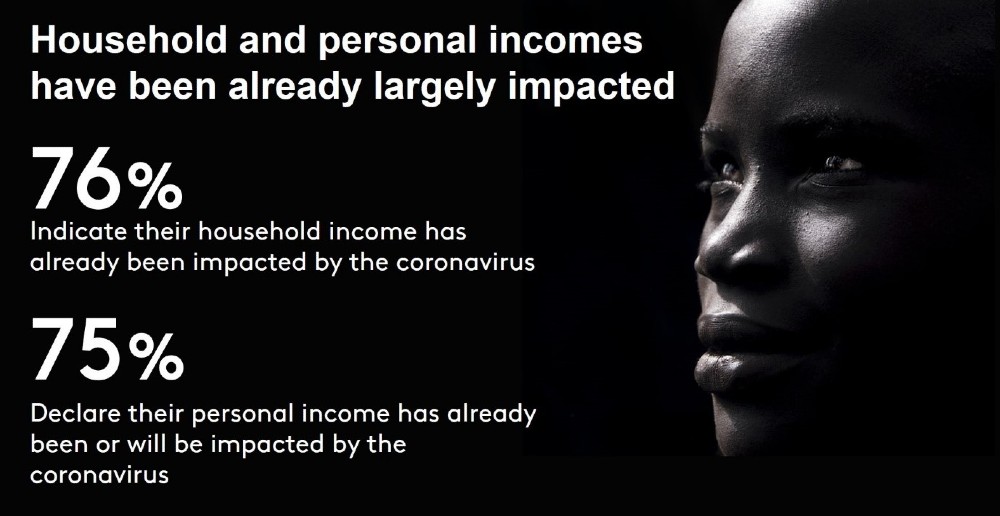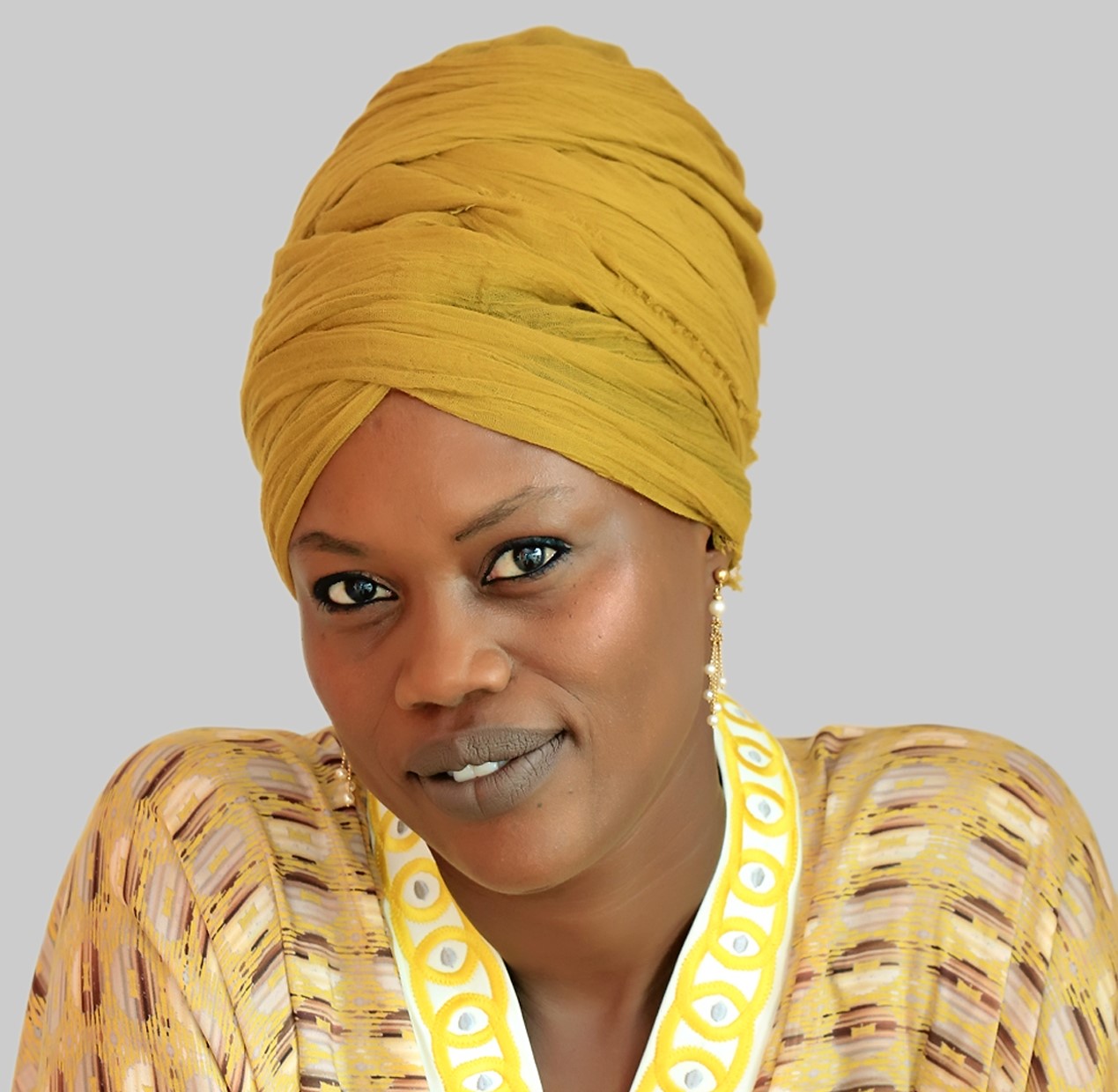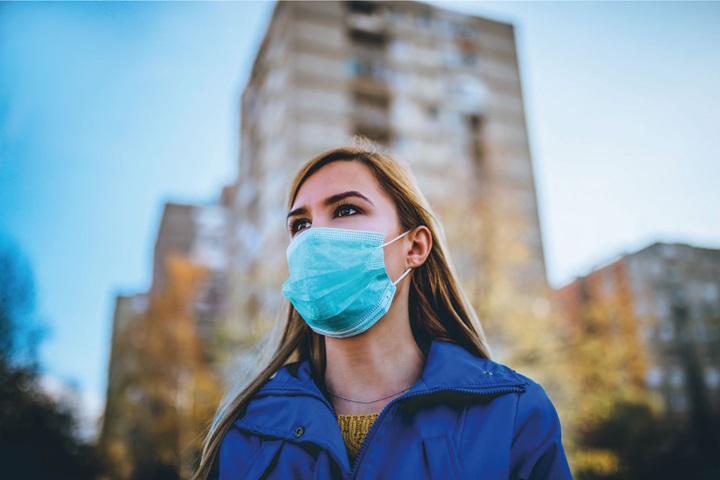We live in a context of global and local stress. Stress at all levels: economical and financial for sure, and also psychological and emotional. The world we were born in to and used to seems to have slipped away.
None of us truly can tell how much longer we are going to remain in this state of orderly chaos, assured uncertainty and perceptible restlessness. But what appears increasingly clear is that We will need to keep moving. Individually and collectively, people, communities, businesses and brands will have to move on, with no time to get ready. Yet, it’s time to… get set and just go. It’s time to swiftly adjust to a world and marketplace that are no longer the same and go on activating and delivering value to consumers in need. Undeniably, successful recovery and growth for brands will be tightly correlated to how marketeers see the new state of the world we live in: is it an uncertain hence scary world that you see? Or do you feel that there’s finally something new under the sun?
There’s no set Africa ‘recovery playbook’. Our experts at Kantar have curated a set of insights which will surely help one see opportunities that the COVID-19 crisis, as other common crises, bring to brands, businesses and society at large.
History is now
We’re living history for the worst… and the best. No matter how terrifying the coronavirus impact on health seemed to be in early days of the pandemic, Nigerian consumers have consistently been more concerned about the financial and economic impact of COVID-19 than the actual virus. And rightly so: the financial impact may outweigh public health consequences. COVID-19 will push 5 million more Nigerians into extreme poverty. In the first week of May 76% of Nigerians have already reported that the coronavirus had affected their household income.

The “Giant of Africa” is acutely impacted. Oil prices are crashing, putting the country in a scary state of fragility; food emergency plans are insufficient. The words of Nigerian Finance minister ring profoundly true not only for the country but for all businesses and brands: “We need to do things that are very radical, and very bold and very different and maybe even unusual so that we don’t slip into a recession”. For brands and businesses, going on is the only way. But all universally share the same intricately complex question: how to survive the immediate crisis, plan for a profoundly changed future and ensure business continuity in between?
Values are part of the success equation
Recovery needs to be envisaged through the lens of the values that are at work in any given society. Values are what drive actions and ultimately what also determine how fast and how successfully we recover from a crisis. What has been achieved over the past 10 years across Africa is deeply seated in a powerful and unique set of values. Strength and resilience, resourcefulness and creativity, drive and passion, all interwoven around an unshakable sense of optimism. This is a crucial component of what will take us as communities and businesses out of the current crisis.
Take the attitude towards a post COVID-19 future for example: despite a distressing financial precarity for millions of people across the continent, Kantar's COVID-19 Barometer reveals that Africa records the most positive attitude towards the future in the entire world. In Nigeria, 60% of citizens and consumers believe that things will get better soon. It’s 66% in Senegal. Enough to optimistically and objectively believe we may be reaching the other side sooner than anywhere else.

For brands, this deeply entrenched and resolute sense of optimism of African consumers is your best asset and inspiration to enable successful recovery strategies.
Pragmatism at the core
Denial is danger. Brands should offer more than just emotional support to consumers – a lot of the advertising content so far looks and sounds uncomfortably the same – it is time for something new! Brands must acknowledge the collective trauma consumers have been and are still undergoing and adapt brand promises to their shifting expectations.
COVID-19 has revealed our human fragility, testing our physical vitality and financial and emotional resources. To win consumers, brands will need to offer tangible help to consumers’ suffering. Products and services need to concretely impact their daily lives. We’re here making the case for pragmatism as the key to successful recovery strategies. Consumers number one expectation from brands is that brands be bold in how they attack the crisis (25%); number two is that they be practical and help consumers in their daily lives (21%). See how you can showcase pragmatism as you activate these 5 accelerated trends.
- Immunity premium
Positive eating, an already established trend, will manifest more intensely. 73% of Nigerians report purchasing significantly more vitamins and supplements than ever before. Consumers will be showing a radical preference for healthier food options, products and ingredients that boost immunity. Super foods and super ingredients that boost immunity will be premium. Reformulate, renovate and innovate to include them in your portfolio.
- Safely produced
With growing anxieties around hygiene and health, consumers increasingly seek clarity and guarantee of the safety of the products that they buy. How will you strengthen your supply chains to deliver to consumers the re-assurance and comfort they are now asking for?
- Bargain hunting
With more than 75% of households suffering from reduced income, consumers will be making important trade-offs in the coming months. Downtrading is your biggest threat. So be present, activate more aggressively to prevent low cost players to win share. From a tactical standpoint, innovative marketing activations will be essential to stand out from the crowd. It’s also time to pivot towards new opportunities, enter new territories and accelerate the diversification of your portfolio.
- In homing
Home sweet home or home safe home? Whatever we call it, home will emerge as the central place of consumers’ lives, more than ever before. Online entertainment will gain massive traction as digital enters a new era. Explore home delivery partnerships and fast-track your ecommerce strategies.
- Inner healing
With the magnitude of the disruption, cognitive, psychological and emotional disruption, there will be a tension towards healing. See how you can leverage the healing power of human connections and humour in your advertising. Use your business strengths to do social good. As ever before, today is time for mission-led marketing for a collective better tomorrow. Driving social change and profits altogether is, more than possible, the path to take.
Smart brands won’t die just yet. They will find ways to thrive in this time of crisis. However shaded it currently is, the world is still a beautiful place. There is a magnificent opportunity for marketeers to play an immensely rewarding role in this time of global and local trauma. What specific areas will you be investing now – to build a sharper edge, create brand preference and make a lasting impression on consumers for the decade to come?
Editor's note: this article was originally published in BizCommunity Africa.


